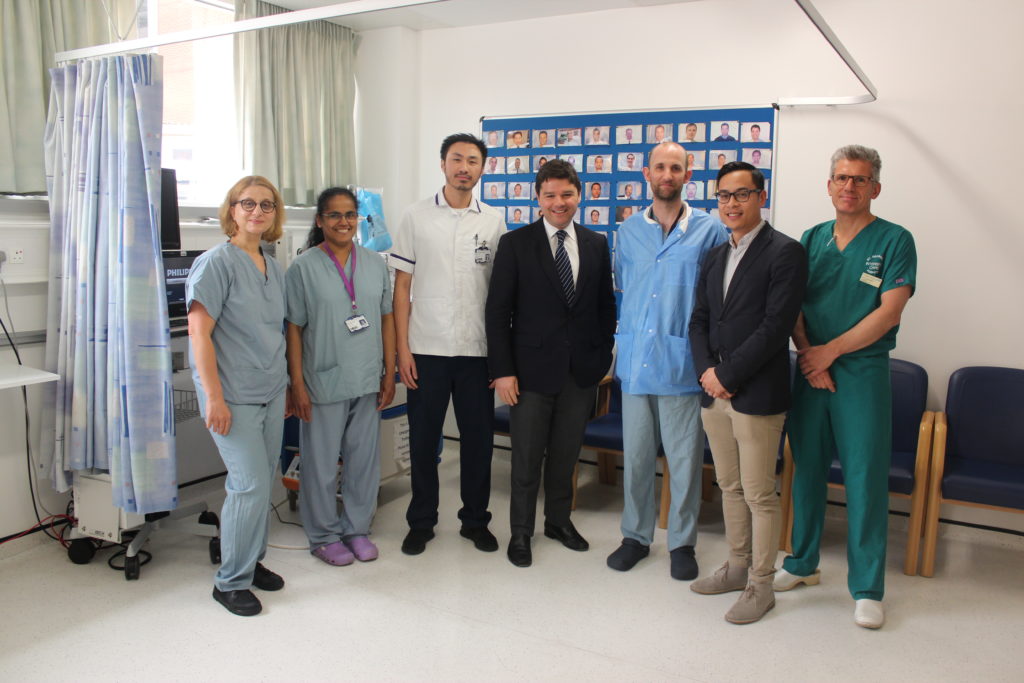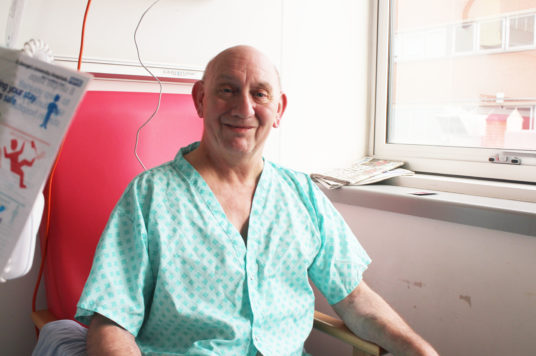“Gruelling” and “complex” procedure saves patient’s life

In April, our cardiac team saved the life of a seriously ill patient, Steve Tanner, who was rushed to St George’s after an unsuccessful six-hour operation at his local hospital in Wolverhampton.
Our cardiac team, including surgeons, anaesthetists and nurses, assessed Steve’s situation and performed a complex, 10-hour, life-saving surgical procedure to correct tissue, deep inside the heart.
Dr Magdi Saba, Consultant Cardiac Electrophysiologyist, said: “St George’s is the only hospital in the UK to provide bipolar radiofrequency ablation to treat complex arrhythmias. Our team pulled together to perform at the pinnacle of professionalism and concentration. It required my colleague, Dr Anthony Li, and I to be on the same page about the strategy and flow of ideas.
“The team also included Alexander Grimster, Lead Cardiac Physiologist, who provided the technical know-how. Dr Frank Schroeder, Consultant Anaesthetist, kept us all calm by keeping the patient stable. The nurses provided crucial support to ensure we had the right equipment.”
The surgery was a success: in recovery, 63-year-old Steve said: “As a younger man, I was really active, so it was such a surprise when I had a heart attack in 1993 aged 39. Back then, there were no stents, I was given beta blockers and just made do.”
Steve was in remission until 2010 when he experienced a number of complications and in 2018 was diagnosed with an irregular heartbeat and was admitted back into hospital.
Steve said: “The whole team here, and especially the nurses, really took care of me. In the end, it was St George’s that had the right skills to save me.”
Steve’s outlook remains positive: “I feel great! I’m quite fit for my age; I want to get back to my wife, and our dog, for long walks in the countryside.”
Magdi said: “In the midst of challenging times, we really have something to celebrate. We got through one of the most gruelling, complex cardiac surgeries in our experience. We all went home long after normal working hours, but feeling we had helped this man when his options were running out.”
“Ultimately, we ensured that the abnormal tissue in Steve’s heart was eliminated, and he can go on to live a normal life.”
Professor Stephen J.D. Brecker, Chief of Cardiology, said: “This was a truly impressive endeavour, and many congratulations to the entire cardiac team.”


